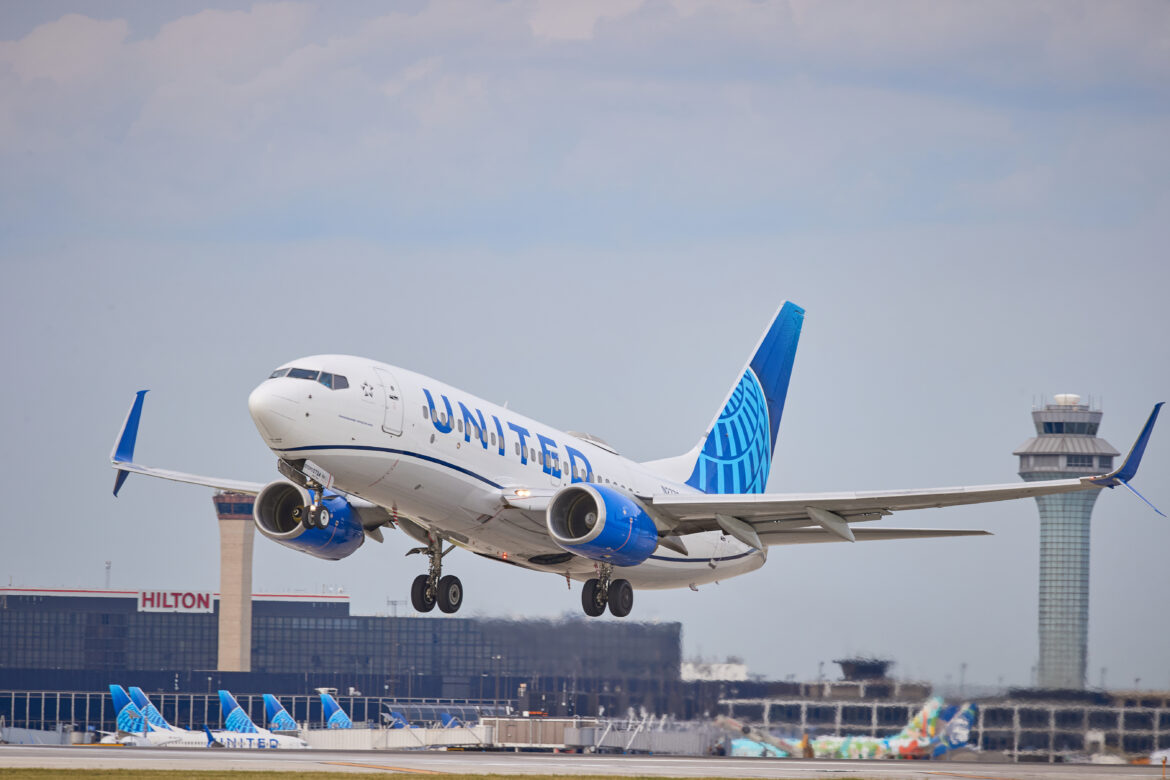Advertiser & Editorial Disclosure: The Bulkhead Seat earns an affiliate commission for anyone approved through the links below. This compensation may impact how and where links appear on this site. We work to provide the best publicly available offers to our readers. We frequently update them, but this site does not include all available offers. Opinions, reviews, analyses & recommendations are the author’s alone, and have not been reviewed, endorsed, or approved by any of these entities.
United Airlines has scored a major win in the ongoing battle for dominance at Chicago O’Hare International Airport (ORD) after a Cook County judge rejected American Airlines’ attempt to block United from taking control of five additional gates. The decision paves the way for United to further solidify its stronghold at one of the world’s busiest airports.
American Airlines had sought a preliminary injunction to prevent the gate transfer, arguing the move violated a 2018 lease agreement with the Chicago Department of Aviation (CDA) and would significantly reduce its ability to compete. The injunction was aimed at halting the transfer ahead of the October 1st reallocation date.
The judge’s ruling clears the way for the city to move forward as planned. As a result, American will lose four gates, which it claims will negatively impact its departures and arrivals. American is still pursuing a breach of contract lawsuit over the matter, but the gate shift will proceed while the legal battle plays out.
United announced it will assume control of the gates on October 1st, a date that coincides with what is expected to be its busiest month ever at Chicago O’Hare International Airport (ORD). The airline has been aggressively investing in its Chicago hub since the post-COVID recovery period, focusing on network expansion, staffing, and infrastructure upgrades. United currently operates 48% of all departures at the airport (compared to American’s 35% share). In preparation for this next phase of growth, United has hired more than 2,000 local employees over the past year, bringing its Chicago workforce total to 18,000. United’s President Brett Hart (seen above) celebrated the court’s decision, calling it a reflection of the airline’s commitment to growth and investment in its hometown hub.
The dispute over gates comes as Chicago moves forward with a massive airport modernization plan, including the construction of a 19-gate satellite concourse connected to United’s Concourse C. The project broke ground in August 2025, but city officials have yet to confirm which airlines will gain access to the new gates once construction is complete. The reallocation signals United’s increasing influence over future airport development. While American has been adding premium seating, widebody jet service, and new flights, particularly during the summer travel surge, United’s strategy has centered on long-term dominance through infrastructure and workforce investments.

American Airlines disputes suggestions that it is retreating from Chicago. In fact, the airline reports it operated 20% more flights from Chicago O’Hare International Airport (ORD) this past summer compared to the same period last year, which signals a strong rebound and ongoing commitment to the Chicago market. Despite United CEO Scott Kirby’s rumored hints that American might “de-hub” Chicago, American insists it is expanding operations, not scaling back. The carrier continues to compete head-to-head with United as the airport grows into an even larger global hub.
Both airlines posted record numbers of flights to and from Chicago this summer. This underscores the airport’s pivotal role in US and international air travel. As United prepares to assume control of its new gates, the competition between these two major carriers is expected to intensify, especially as the CDA moves forward with its next-generation airport expansion projects. The October 1st gate transfer marks a turning point in the airport’s future and sets the stage for United to deepen its dominance while American continues to fight for a larger share of one of the nation’s most competitive aviation markets.
Anthony’s Take: United has done a good job of owning the Chicago airport and I don’t see this changing. American retreated and United pushed forward. United is headquartered in Chicago and has a ton of influence there. It’s no surprise how this ruling went.
(Image Credits: Karson via Unsplash and United Airlines.)
User Generated Content Disclosure: The Bulkhead Seat encourages constructive discussions, comments, and questions. Responses are not provided by or commissioned by any bank advertisers. These responses have not been reviewed, approved, or endorsed by the bank advertiser. It is not the responsibility of the bank advertiser to respond to comments.
Advertiser & Editorial Disclosure: The Bulkhead Seat earns an affiliate commission for anyone approved through the links above This compensation may impact how and where links appear on this site. We work to provide the best publicly available offers to our readers. We frequently update them, but this site does not include all available offers. Opinions, reviews, analyses & recommendations are the author’s alone, and have not been reviewed, endorsed, or approved by any of these entities.
